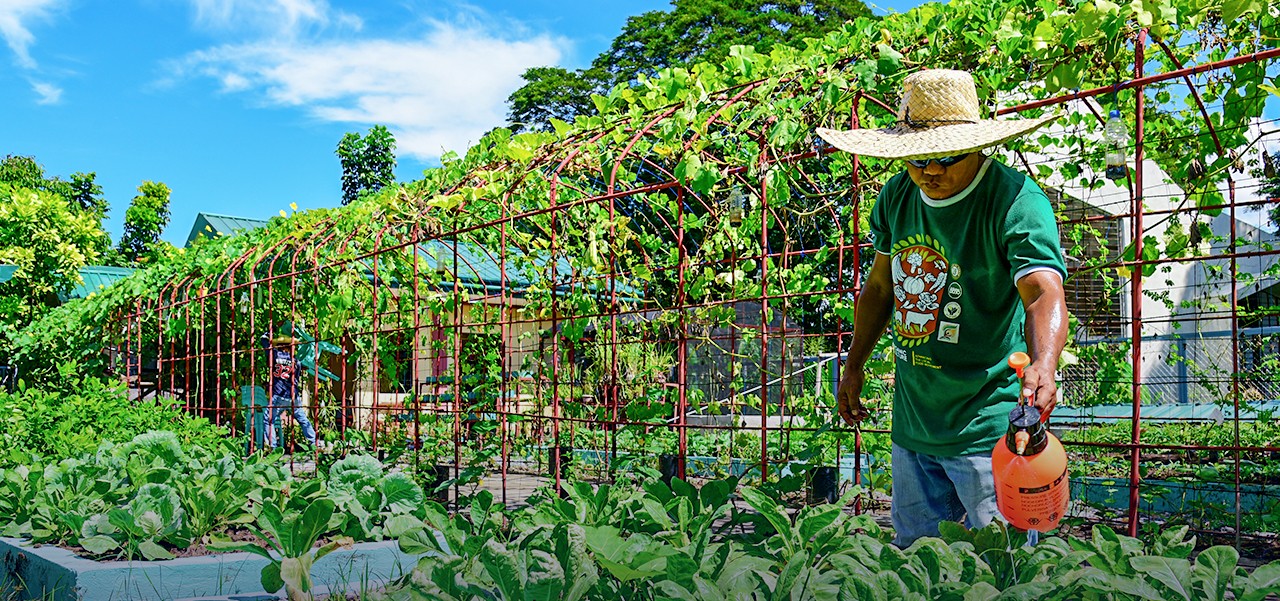The City Agriculturist Office on Wednesday encouraged organic farmers in Davao CIty to get certified with the existing organic certifying body for small farmers.
Jeana M. Ablen, CAgro Senior Agriculturist, told Madayaw Davao that this year, the Davao Organic Farmers and Advocates Association (DOFAA)– an association that operates within Davao City, was given authority to certify small-scale organic farms and their products.
“Aduna nata’y organic certifying body sa Davao City, kini gihatagan na og certification sa Bureau of Agriculture Standards sa kauluhan sugod atong February 2025. Ang ilahang accreditation mulungtad sa 2030. Usa ni ka dakong kahigayunan sa atong organic farmers nasayod man ta nga sila gagmay na land holder maka pacertify na (We now have an organic certifying body in Davao City. It received certification from the Bureau of Agriculture and Fisheries Standards (BAFS) starting February 2025, and their accreditation is valid until 2030. This is a huge opportunity for our organic farmers, especially small landholders, to have their farms certified), ” Ablen said.
She said that it will be a huge advantage for farmers to have their products labeled and certified as organic.
Ablen said that the City Government of Davao is supporting the effort to have a Participatory Guarantee System (PGS) – a certifying body for small scale farmers. Currently, DOFAA is already a Securities and Exchange Commission -registered legal entity and has also secured a mayor’s permit.
The DOFAA is located in Los Amigos, Davao City.
She said that while the PGS cannot operate like a third-party certifier for large farms, they are authorized to certify small organic farmers who have five hectares farms and below. This is classified as a “small farmholder.” This provision is outlined in the Organic Agriculture Act (RA 11511), signed by former President Rodrigo Roa Duterte.
Ablen said that under the new law, small scale farmers are given a chance to have their farms certified through the PGS system unlike before that the certification may only be obtained from third party independent verifiers that entails huge costs.
To be verified under the PGS system, the organic farmer must be verified by the City Agriculture office and their barangay, and must become a member of the PGS Davao group because it operates through a peer-review system.
She said that the PGS in Davao has a local scope and not nationwide like the third-party certifiers, however, PGS-certified products can still be marketed in other areas in the Philippines.
The PGS has its own standards aligned with the Philippine National Standards on Organic Agriculture
“Once your farm is verified to meet organic standards, they issue an official seal that can be placed on your product labels, showing it’s ‘Certified Organic’,” Ablen said in the vernacular.
She added that the organic label gives consumers confidence In buying organic products. She noted that there are still costs involved such as processing fees, permits, office maintenance, inspectors, and peer reviewers but these are more affordable than third-party certification.
Ablen said that their office continues to support the organic farmers in Davao City, in fact they aim that farmers who sell their organic products every Thursday at Rizal Park will also be certified.
For now they support these farmers by providing free transportation every Thursday and Friday to make it easier for them to display their products. CIO



